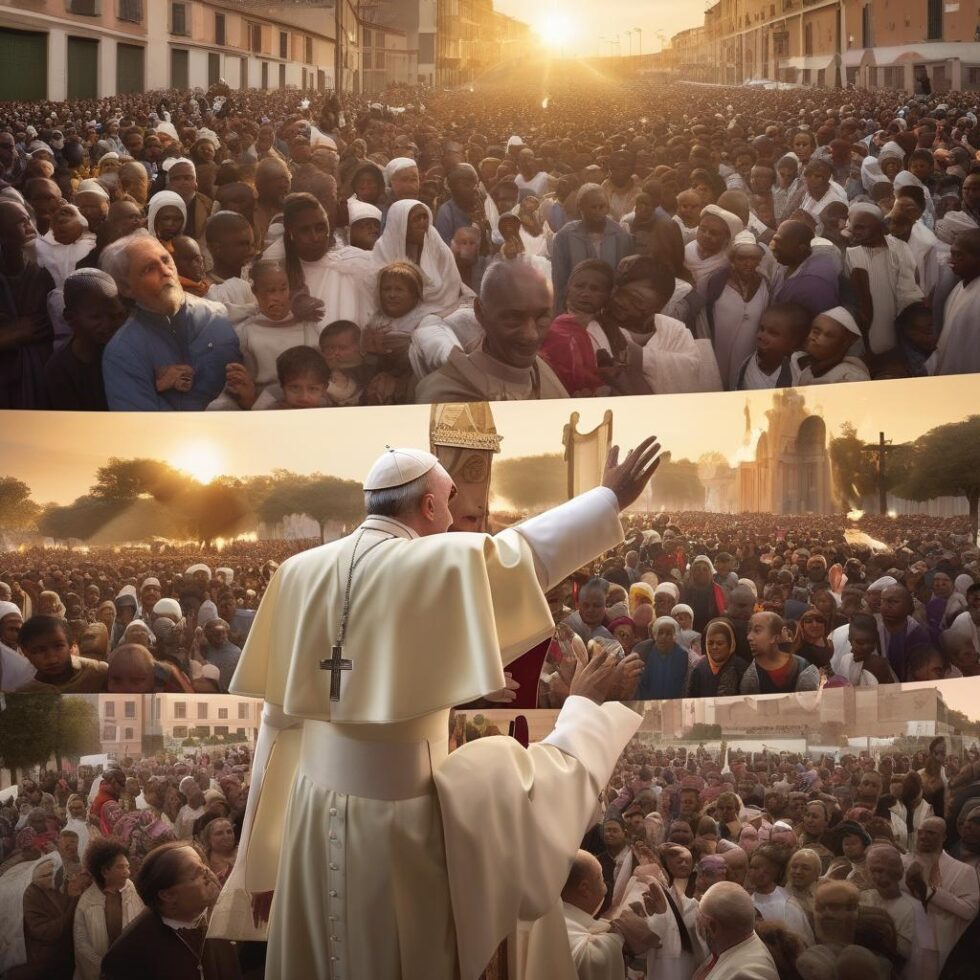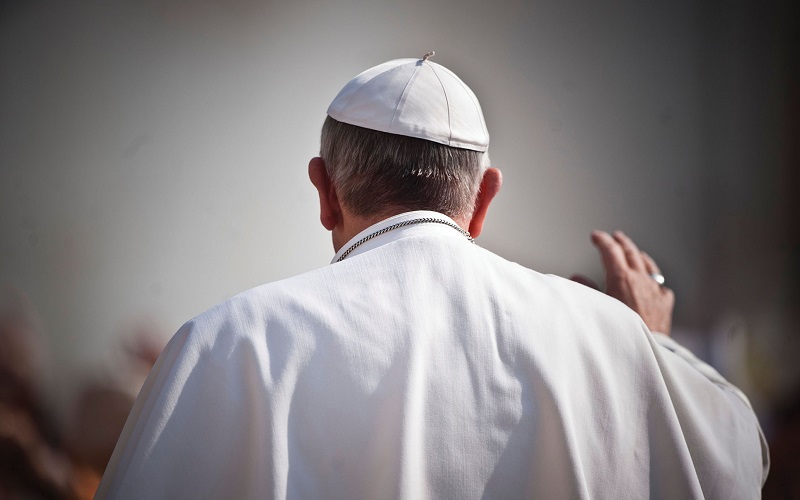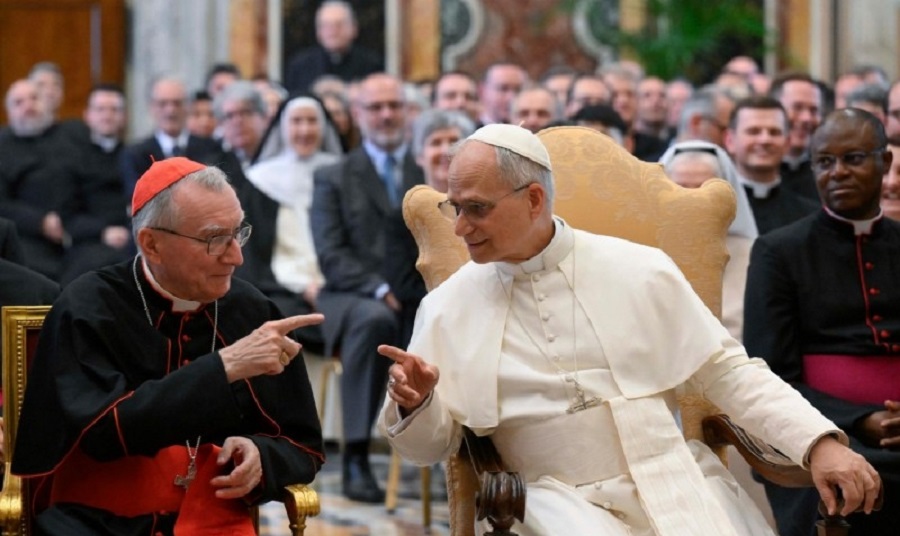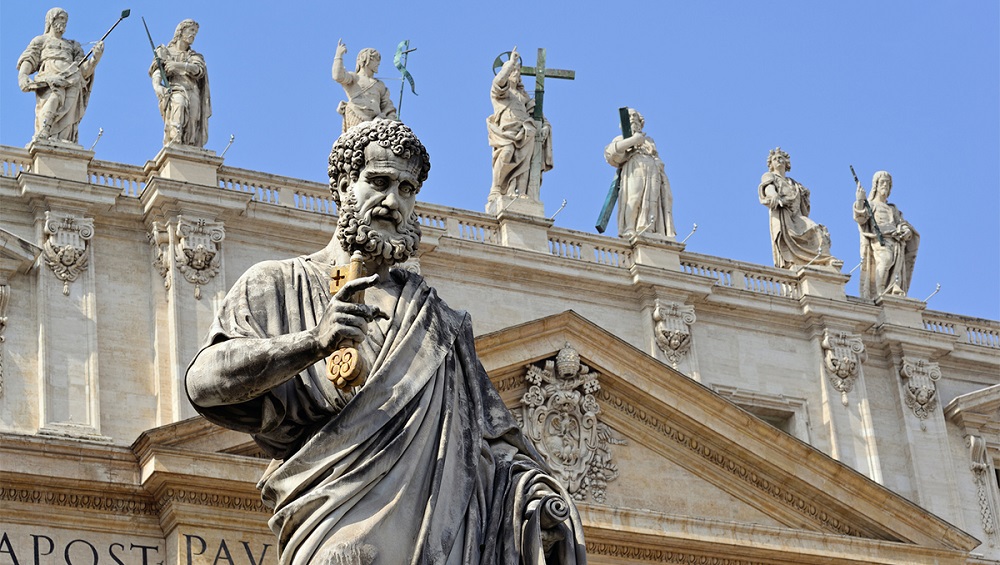
A shepherd for the world and the Church. A Church for the poor and the oppressed. A Church for peace. A Church that gives meaning to life and takes meaning from Christ.
These are all interconnected, but not with simple, easy knots. They are twisted and indirect, paradoxical.
For the poor and oppressed: capitalism and modernity have done more for the poor than ancient systems.
There is a simple sign to prove it: the increase in life expectancy, population growth, and the betterment of life. Certainly, capitalism has also created new forms of exploitation that did not exist before. Perhaps it has uncovered and codified, thus limiting, forms of social oppression that were previously disguised, concealing and validating the extermination of millions and concentrating all wealth and power in the hands of a few.
In other words, liberal capitalism has brought freedom and democracy, along with an overt oppression that is no longer hidden. This does not mean justifying oppression, but at least within capitalism, there is a way to limit and fight it that is more difficult in other systems. The Church must be at the center of this difficult dialectic, accepting the complexity of the modern world.
For peace. The old adage says si vis pacem, para bellum. This idea has often been the excuse that masked the rush to war, and since war was considered just, it could also be deemed holy and justified by the current religion. This must become impossible.
However, absolutist pacifism cannot be allowed either: it would justify attacks and the slaughter of innocents, who would have no right to rebel and defend themselves but should simply accept being killed by the current persecutor. This would endorse persecution and paradoxically bless unjust wars.
As such, the path to true peace is complicated non-linear, and must be sought with great patience and perseverance. The Church should be at the heart of this bothersome, precise, tireless, concrete quest for peace. As with the poor, the devil is in the details here, but we need to avoid generic generalizations.
The question of Christ is also simple and yet not. In a world where, for the first time in millions of years, humans seem to have limitless lives due to increased longevity and population multiplication, people feel like monsters, zombies, or vampires—alive but dead, needing to kill to continue living without a soul.
This existential dilemma is particular to the last 150 years and will likely intensify in the coming centuries with the extension of life in years and comfort. Christianity and the Church offer a unique, practical answer: the Eucharist — the gift, or if you will, the illusion for a moment, of eternal and innocent life, free from guilt, in union with Christ.
One can believe in the truth of this or not, but even beyond faith, it is a beautiful fairy tale that perhaps allows people to live each day a little better and with less anguish. The Church can offer this “fairy tale” to all people of any faith. It’s not about passing theological exams but about providing a word of hope to eight billion anguished people and not closing itself off within the walls of trusted believers. Christ did not speak to himself but to those who did not believe and often did not want to believe.
Without the voice of the Church, the oppressed can only find radical violence to oppose the existing system.
Global institutions for dialogue, like the UN, are caving, and there is no replacement. If the Church doesn’t step in with an upgraded diplomacy, the world will have a void that will be filled with violence.
If the Church doesn’t bring Christ to everybody, Christ will simply leave the Church.
+++
These three things are perhaps the true essence that Pope Francis has opened up with his papacy and should be the concrete mission of the new Pope.
I write these things by chance. If I had been an observant, orthodox believer, I would not be here and probably would not be saying this. But I had a series of accidents by chance (Providence, Karma, or Tao). I took them seriously while I could have shrugged them off. And I have arrived here—outside the Church but close to it.










“But I had a series of accidents by chance” …
A chi, mai capitati ?
Non domanda retorica: sapere a quanti accada (sul totale dei viventi) e che questi ne tengano conto o li ignorino, perfino manco se ne accorgano ?
Potrebbe essere di (modesto) ausilio, nel provarsi al meglio comprendere del Gioco.
Potrebbe…
Ricordo di un saggio sulle civiltà mesopotamiche (letto ormai parecchi anni or sono) dove si rammenta dell’ assenza di “Nulla troppo” tra quelle genti che furono: tutto quanto (dai sogni al minimo accadimento in veglia…) “accident by chance” e da esser divinato (Sisifo condannato alla fannullaggine , al confronto ^_^).
Una “fairy tale” (e quella propria della Chiesa) ?
Beh, potrebbero magari impegnarsi a migliorarla…
+ La figura del “Pastore”, amorevole sul proprio gregge ?
Un “mentire a se stesso”: al pastore il gregge è mezzo e non fine, con l’ “amore” (di pecore o di capre possa trattarsi) per nulla fattore rilevante (di brutali comportamenti su pecore, reali e da pastori altrettanto: visti usuali e senza essermi dovuto impegnare a cercarne, persino la “chance” a non averci dovuto faticare troppo su…).
Potrebbero provarsi con la figura del “Guardiaparco”: protegge un territorio, vive di tale attività, però non limitando la vita in libertà degli animali, anzi rendendola quanto più possibile libera appunto.
Scherzo ?
Certo che sì, ma non del tutto: metafora “pastorale” che sul serio trovo tanto bimillenaria quanto infelice [ Un piccolo gregge, di capre, reale e di mia conoscenza ? I pochi suoi proprietari, pastori part-time, ad averlo rilasciato sul versante sovrastante il villaggio: il lupo allora non ancora tornato, unico pericolo l’ aquila che può predare qualche capretto (ma gli adulti a difendere i piccoli: ricordo bene di una volta con il binocolo ad aver a lungo seguito il “duello”, tra capre e aquile…) e nessuna necessità di lavoro per i pastori, tranne per quando giunto il momento del proprio “utile”.
Grosso errore…
Le capre ad essersi trovate molto bene, da libere, tanto da darsi da fare ad evitare i “pastori” quando quelli ad aver voluto riprendersele.
Pochi lenti bipedi, su vasto e ripido ambiente, ad inseguire agili e veloci capre…
Han finito per rinunciare (i pastori) però e ancora dopo anni, un di loro a dirne: “Certo, son capre mie.” (Le capre a vederla in modo diverso… ^_^).]
++ Potrebbero concedersi meno goffaggine , riguardo al “miracoloso” ?
Più rosicchiamo briciole di conoscenza, dall’ Universo, più questo ci appare “Gioco” a raffinate regole.
Un “Giocatore” di tale bravura perché mai avrebbe bisogno di “barare” (violando le proprie stesse regole) ?
Siamo noi, i “giocati”, quelli a desiderare il potere del “prodigio extra-regola” (“Oggi ho bisogno che il giorno mi sia più lungo e “Lui” mi ferma il Sole in cielo !”)
Pochi mesi fa m’ era capitato di leggere d’ una intervista ad un medico, cattolico e che presta servizio a Lourdes ?
Beh, quello raccontava di come fosse stato testimone di alcune (poche e del tutto non “on demand”…) guarigioni improbabili/inspiegabili, tali da non poter far altrimenti che considerarle miracolistiche.
Però ad aver precisata assenza d’ un “barare”: prodigiose le guarigioni, non sovrannaturali i mezzi delle stesse.
Pure un fedele a poter desiderare “fairy tale” di minor semplicismo, no ?
+++ Pace, infine…
Preferibile a Guerra ?
Beh , preferenza mica nata con il Cristianesimo o sia pur la sola Chiesa di Roma (Odisseo che si prova a fingersi pazzo, pur di restarsene a casa con moglie e figlio e trascurare delle “corna” di Menelao; l’ impegnativo “sciopero” d Lisistrata e delle sue amiche; chissà quanti altri gli esempi, di chissà quante altre culture…).
Pólemos però è “regola” di questa “scacchiera”: la Storia racconta fors’anche d’ un solo anno, privo di guerre ?
Solo opinione (mia) tuttavia sempre più mi appare come, considerare “condizione di eccezione” (la guerra) non aiuti (la pace).